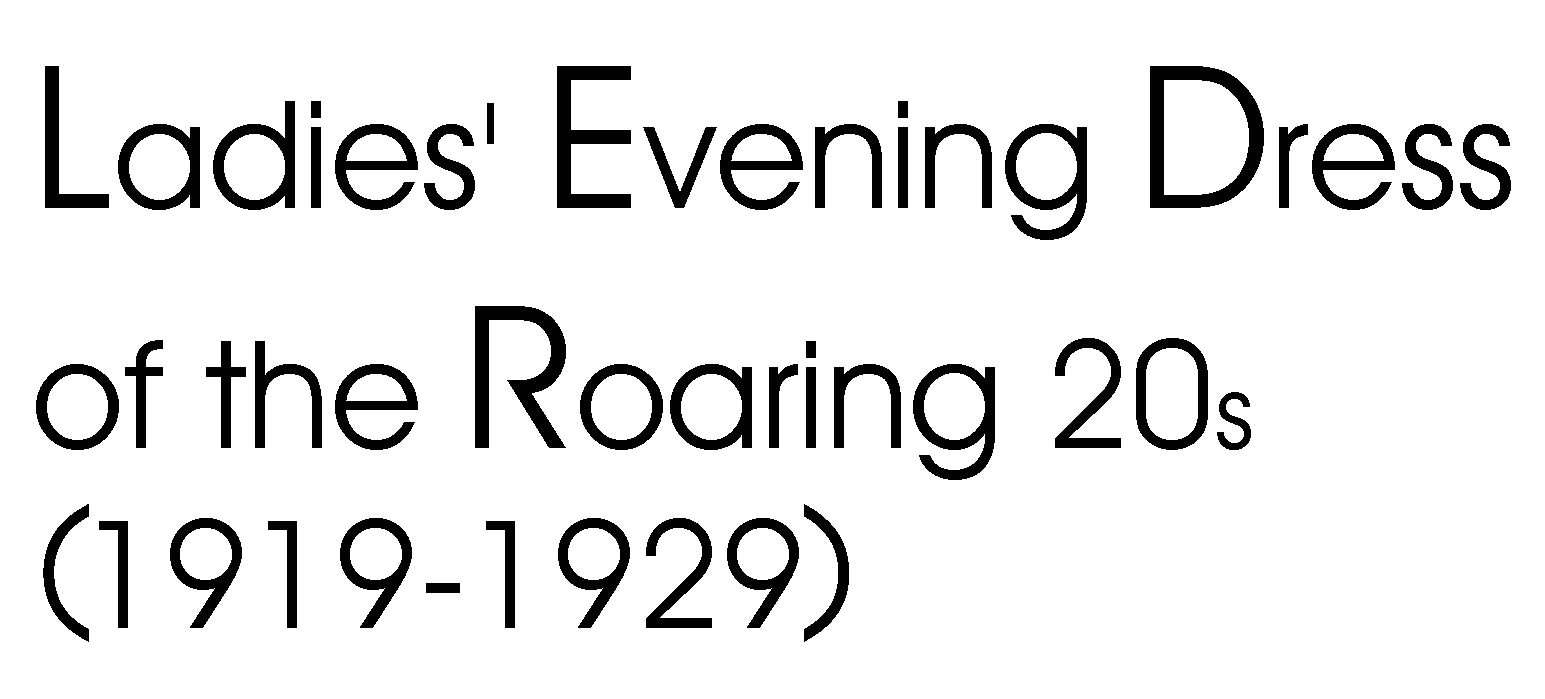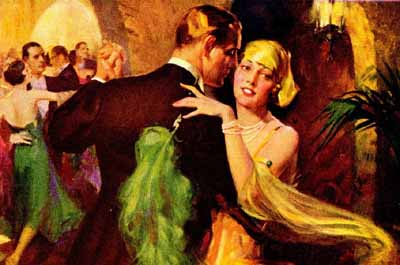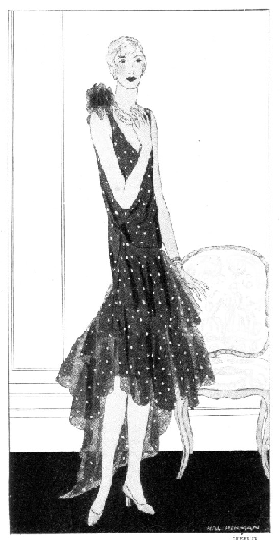

An Overview
by Katy Bishop, Vintage Victorian
This page is still under construction
|
Dressing for an Evening out in the 1920s
|

|
The 1920s was a pivotal era in women’s fashion—an era that saw Prohibition,
Jazz and celebration of war’s end. Gone was the hourglass figure of the 19th Century, swept away by the
World War I, and replaced by the figure of a modern, independent woman. This book covers fashions from 1920 to 1924,
an often overlooked period of fashion which was a time of transition between the draped and layered fashions of
the post World War I era and the free and easy gowns of the jazz age flapper.
|
|
By 1920 a new ideal figure was in place: youthful, athletic (almost boyish), with a small bust,
de–emphasized waist and narrow hips.
At the start of the decade, evening dress seemed unprepared to fully embrace the drastic changes
seen in everyday fashions; it often
retained the elaborate drapery and layering of rich and delicate fabrics seen in the previous decade.
At the same time the silhouette
was slowly evolving, favoring styles with less tightly fitted bodices, lowering waistlines and rising
hemlines. Some designers still
produced full-skirted gowns such as the Robe de Style, with elaborately panniered or ruffled skirts,
in stark contrast to the new slim
silhouette. Eventually the unfitted gowns of the flapper would become the prevailing fashion.
Accommodating the simplification of gowns, undergarments were less voluminous and less numerous, corsets
were still worn but gave the
wearer a boyish silhouette, brassieres and bust flatteners were worn. Hairstyles were shorter, with bobbed
hair or hair coifed, with
Marcel waves and a tight bun, to appear bobbed.
The fashions of this often overlooked era are beautiful and varied, with styles designed to suit many figures
and tastes.
They are perfect for prohibition era events, armistice celebrations, jazz age parties; many of the styles
are elegant and
up-to-date enough to wear in a modern context.
|
THERE is nothing more tiresome than to offer reasons for that most adorable and unreasonable of things—a
French fashion. It is a temptation, of course, to the logical mind to account for the present interest
in feet and ankles—the polite phrase for anything below the knee—by the shortness of the present dresses.
But how can one be sure that the aforesaid shortness is not the result of the winning ways of the new French
shoes and the delicious indiscretions of the new French stockings and not vice versa or contrariwise?
The Delineator, March 1920
|

This is the time of year when every smart woman gives undivided attention to her
summer wardrobe, and this summer, of all summers since the war, the clothes are more than ever alluring and
distinctly feminine. They all have a floating, fluttering quality of grace and becomingness that is certain to
make the business of selecting them a happy affair. Especillay for afternoon and evening is this
new note of softness in clothes apparent. It all started with that altogether charming and by this time well-known gown of
Louiseboulanger’s made of exquisite printed chiffon and showing a hem that floated in an entirely uneven line, much longer in the
back than in the front. And now all the skirts are longer, waistlines are more defined, and there is a galaxy of floating panels,
draperies, bows, boleros, scarfs and circular effects.
-Good Housekeeping, June 1928
|

MOLYNEUX sends this clever white satin evening gown trimmed with strass and silver.
Good Housekeeping, June 1928
|

CHÉRUIT’S summery evening gown of black tulle and gold dots shows the new short train.
Good Housekeeping, June 1928
|

PHILLIPE ET GASTON designed this exceedingly graceful dinner gown of rose and black satin, which has a matching cape of
black lined with rose and tied at the collar.
Good Housekeeping, June 1928
|
|
|
|
|
>
|
NEWS:






last updated 24 jul 2014/csb
|


